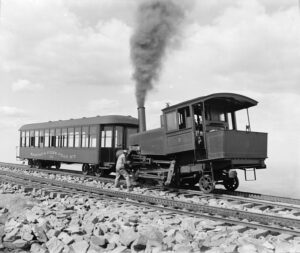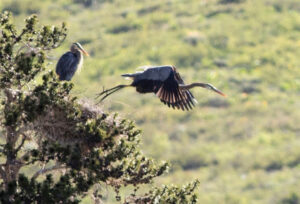By Joyce Lohse
In mid-June, Western Writers of America (WWA) converged on Loveland, Colorado, for their 68th Annual Convention. For a writer struggling with focus and direction, this was a perfect opportunity to learn about industry news and gain inspiration. Three days of listening, interacting and learning among 200 of the most talented Western writers and historians on the planet was irresistible. The prospect, which included a road trip across Colorado, was exciting, yet daunting.
During Covid-19 shutdowns, writers’ block was a popular topic among writers on bulletin boards and social media. This term is sometimes replaced by different words, such as stalled, stumped and derailed. The mind goes blank and words refuse to appear on screen or paper. Although the desire to create is present, nothing happens. Personal skills and commitment are not to blame.
During business shutdowns, the book industry was hit especially hard, at devastating levels in some sectors. Nobody was exempt from changes in contracts and publication dates, not to mention monetary concerns. Freelancers continued writing their works-in-progress, adding a book to a series, or building upon a well-defined outlines. Many authors who were still able to produce work as usual while navigating the challenges, stresses and struggles of the pandemic faced an unsure publishing outcome and future.
When the dormant book industry recently struggled back to life, some books had dropped from production. Authors were relieved and rejoiced when books were rescheduled to move forward. When long-awaited edits finally arrived, new titles emerged. Books from the previous year began to receive recognition and awards.
Whether in an urban or rural location, writers can work almost anywhere. All that is needed is some space, a computer and electricity, or even pen and paper, which some people favor. While access to libraries, archives and museums have been missed as a cherished resource, online resources abound to help build a roadmap.
Freelancers insist they relish solitude. Some proudly claim they invented social distancing. No interaction, no interruptions, no problem. As long as attractive distractions are avoided, any work space is effective. However, if focus wavers, pesky writers’ block is lurking, ready to intrude.
Remote writing and creative online research is not unusual to author, researcher and archivist, Christie Wright, who lives in Loveland. She continues with her work, including an article, “Where Have All the Ghost Towns Gone?” for the South Park National Heritage Area. She is on a committee assisting with a University of Denver Library project to digitize Park County archive images, and writes blogs for the Como Civic Association.
A former school teacher, Nancy Oswald of Cotopaxi writes books while she and her husband live and work on a cattle ranch. She juggles ranch and writing while creating young adult historical fiction books, and is actively involved in the writing community. Recently, she was elected to the board of directors of WWA.
Conferences provide valuable education, industry updates and interaction. Herd-bound urban and rural authors seek news, shared ideas, education, and industry contacts among experts and peers. Members gather and recharge their creative batteries with meetings, seminars, and workshops when they travel to convene. Questions and discussions with experts in the field are priceless.
After annual events, meetings and gatherings were canceled and disappeared from the calendar during shutdowns, writers turned to the internet, taking advantage of many communication options, and seeking the increasing amounts of information which are now available.
When live gatherings were not an option, Zoom and similar computer applications appeared, to connect remote individuals with audio and video conferencing meetings and presentations. Although this method did not offer a live experience, many businesses and schools were able continue. Learning curves soared, while literally everyone scrambled to learn the new technology, and equipment was hastily gathered and distributed. Skill sets evolved and progress was made.
When the annual Women Writing the West (WWW) conference was canceled early last year, organizers started from scratch to produce the programs in Zoom format. A group of diligent members scrambled to produce the conference, accessible to all writers of all levels while participants were safely isolated. The format will be repeated for the October 2021 WWW Conference, expanding on new skills learned last year, and providing access to those who wish to participate but cannot travel.
WWA’s convention reappeared on the calendar in mid-June after last year’s conference was canceled. This year’s gathering took place in person on schedule in Loveland, Colorado. New books were introduced, contacts were made, projects were discussed. Awards were presented and celebrated. Trends in publishing, language, history, and culture were popular topics for discussion. Western writers from the past, such as Louis L’Amour, Zane Grey, Elmer Kelton, Max Evans and many others, were referenced often.
Several attendees at the WWA conference acknowledged that they struggled with writers’ block during the past year. They described lack of focus and being unable to move forward during the height of the pandemic. All acknowledged benefiting greatly from attending a conference and meeting in person.
Businesses, industries and associations continue to re-open. It takes courage to move forward after the challenges of the past year. In the meantime, Western writers continue to write, preserving history and honoring stories of the past.
Western Writers of America: www.westernwriters.org
Women Writing the West: www.womenwritingthewest.org
Colorado author Joyce B. Lohse has written several books about Western History. Currently, she is searching under rocks for new stories.


